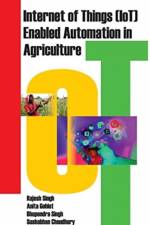av Rajesh Singh
841
Studies have shown that there is a perfect link between strong IPR regime protected by the rule of law and economic development of a country. India is still at nascent stage when compared with the IPR regimes of developed economies. Hence, governmental and intergovernmental initiatives in association with commerce and industrial bodies are being taken up for creating awareness on IPR. As a signatory to many international treaties and conventions, India has modified many existing IPR laws and codified new ones to foster protection of Indian traditional knowledge and innovations emanate from research and professional institutions of India. Even though the researchers of software, pharmaceutical and biomedical fields are leading the pack of most number of patent applications received at Patent Offices in India, requirement of such awareness in other fields is necessary. It is felt that ignorance on legal and administrative procedures involved in filing for IPR is a major issue that needs to be addressed immediately. Although articles and books are written on the conventions/treaties and on the importance of IPR and its protection, non-availability of IPR information in the form of a concise ready reference on IPR/patents/designs/ copyrights/trade marks and laws, application forms and procedures thwarts common-man to understand IPR and related issues. Enhanced awareness on IPR laws and copyright procedures would help filings for IPR by scientists, teachers and researchePublication of this volume is an attempt to alleviate this ignorance and spread information on IPR, which may help the needy to understand the intricacies of IPR and apply for IPR. It covers topics on IPR including important definitions, history of evolution of IPR concepts, major organizations that control IPR in bilateral, multilateral and global forums, issues concerning developed and developing countries with reference to enforcement of IPR, implications of major treaties of IPR protection to which India is a signatory, management practices of IPR and finally suggestions on creating increased awareness on IPR. Written in a simple language and concise form, this volume is a comprehensive treatise on IPR required for common readers and professionals. In addition to individual papers that deal with specific topics in detail, provision of suitable application forms for copyrights, trade marks, patents, designs, etc., as annexure makes this volume necessary addition in libraries of private, public, academic and research institutions, legal institutions and practicing lawyers and charted accountants. As many academic institutions have included IPR in course curricula, this volume would serve as a textbook suitable for teaching too.

















